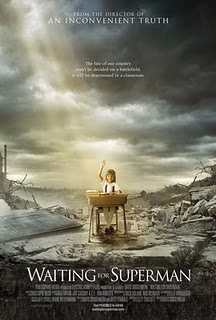Last night I gave a talk on Virgil Thomson's film scores for Pare Lorentz's Depression-era documentaries The Plow that Broke the Plains and The River. If you have never seen the films, they are powerful statements on how mankind has recklessly harmed the environment and the effects the nation was reaping at the time from agricultural over-cultivation (just think of the Dust Bowl) and deforestation (the regular flooding along the Mississippi and her tributaries). Thomson's scores work to crawl under your skin and help you feel the impact of the searing images on screen, and I firmly believe the films would not be half as successful as they are without the music. Though there is narration, these are essentially silent films and the music tells you what to feel long before the narrator in most cases.
But as beautifully constructed as the films are, as I was researching them for my presentation I was struck by their genesis more than their outcome. Both of these films were financed by the government. They are New Deal propaganda pure and simple. When Rexford Tugwell took the reins of the Resettlement Administration, he recognized that many were going to view its job of telling people where to live and how as socialistic (a view that did ultimately force him out of that job). Hoping to cut off criticism, he established an office of information for the RA and began churning out an amazing number of images that define the way we see the Great Depression. In the Photography Project, top-notch artists documented the Depression's human impact - resulting in the most iconic image, Dorothea Lange's Migrant Mother. In the Special Skills Division, Sidney Robertson (who later married Henry Cowell) collected folk songs in California, music that was the basis for Woody Guthrie's career. And in the Film Project The Plow that Broke the Plains and The River transformed the way the RA and the Tennessee Valley Authority were viewed by the public. All these artistic products were paid for by the government, were produced during Roosevelt's bid for a second term, and told Americans why the New Deal was necessary.
We often moan about the ways politicians spin ideas and manipulate images from Bush's "Mission Accomplished" banner to Obama's greek columned acceptance speech in Denver to the infamous death panels. But to see these films with newly recorded soundtracks was to realize that today's politicans are inept at harnessing the media to manipulate the public. No wonder Congress in Roosevelt's day scuttled his attempt to have a joint session viewing of The Plow that Broke the Plains.
Self-doubt in the tech industry
2 years ago




No comments:
Post a Comment